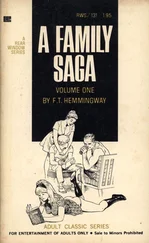I have just finished ‘Shirley’; which I think better than either ‘Jane Eyre’ 42 or ‘Villette’. You must read it. What a letter; every sentence seems to begin ‘I’. However, a good healthy dose of egotism is what you need, while you might pass on a little of your superfluous modesty to Bookham. Sorry you’ve returned the old Meistersingers, 43 but think the Beka better value.
Yours
Jack
P.S. What is the name of the ‘Galloping Horse’ piece by Chopin, 44 I want to make Mrs K. play it.
TO ARTHUR GREEVES (W/LP IV: 316-17):
[Gastons
11 May 1915]
Dear Galahad,
Tut! Tut! Must I change your soubriquet? From being the spotless knight of the Grail, are you going to turn philosopher and meet me on my own ground to dispute my shadowy quibbles about the proper sphere of sentiment? Galahad becomes Merlin: who knows but that you may ‘grow besotted of a damosel’, like him, and like him, I may find you when I come home bound fast under a great stone, making a piteous wail to all who pass. And what a relief for the neighbourhood! I think I shall nominate a suitable damosel–say Miss Bradley or Sal Stokes–to besott and bind you. By the way, à propos of Miss Bradley, has she yet recovered (or better still died) from that peculiarly interminable complaint of hers, which prevents the gramaphone being played up at Glenmachen?
But to go back to the sentiment controversy, your objection is nonsense. You argue that sentiment is delightful in art, because it is a part of human nature. Quite right. From that, you deduce that it ought not to be confined to that sphere of human nature where it is delightful–viz. art. That is almost as sensible as to say that trousers are delightful only because they are a part of human clothes: therefore they ought to be worn, not only on the legs, but every where else. Do you maintain that it is a highly commendable and philosophical act to wear trousers, say, on your head? My point is that art is a recepticacle of human thought: sentiment, emotion etc make up that section of human thought which are best suited to fill that definite receptical–and no other. For why, when we have found the best place to keep a thing, should we keep it in other places as well, or instead? By the analogy of the trousers I have shown how ridiculous that would be. As for your idea that to be young, one must be sentimental, let us go into it. Young children are practically devoid of sentiment: they are moved only by bodily pain: young men are a little more sentimental, middle aged ones considerably more so, and old ones the most mawkishly so of all. Sentiment, you see, is a distinct mark of age.
Ah! Having gott en (N.B.) that off our chest, we can proceed to other matters. That little book about Wm. Morris has interested me so much–or re-awakened the old interest–in him, that I have just written up for ‘The Roots of the Mountains’ in Longman’s pocket edition: 45 it is about the Goths, and is praised in that book as one of the best of the prose Romances. What is the good of getting Anderson in Everyman? 46 It is true, the tales have considerable merit in ipso (that’s Latin and means ‘in themselves’, Ignorant!): but yet, if any book ever needed or was greatly improved by fancy binding, that is it.
The word Soaking-Machine can hardly be styled ‘slang’, being, as it is, coined by myself for private circulation: I thought you knew what it meant. The word ‘soak’ means to sit idly or sleepily doing nothing, and a S’ing machine is [a] place for this operation, i.e. a comfortable seat. Surely I must often have said to you in the course of our walks ‘Let’s find a soaking-machine’ or ‘Here’s a good soaking-machine’?
I despair of making head or tail of any of your gramaphonic talk, where your extraordinary loose and obscure use of words like ‘latter’ etc makes havoc of the sense. Do you mean that you had another record of the Venusburg music, before you heard it with Lohengrin, à l’autre côté? Or do you know what you mean? Or, lastly, do you mean anything at all. I write such enormous letters (which you probably never read to the end) that, from the way Mrs K. keeps looking at me, I believe she fancies it a billet doux. Why didn’t you give me the number of the Polonaise: and what cheek to say ‘I think it is in A Flat’, when a journey downstairs would make sure.
It has been raining for almost 36 hours here, which is not very cheerful. The idea of spelling melodrama ‘mello-drama’ is really quite ‘chic’: I should take out a patent on it, if I were you. I hope you are in good spirits these days, and that the lady of the office window is kind & in good health. Write soon: you’ve know idea how welcome your letters are. By the by, you might tell the girl in Osborne’s to send on the monthly catalogues to my address here, which you can tell her–Columbia, H.M.V., Zono, Beka, are the chief. Valde.
Yours
Jack
TO HIS FATHER (LP IV: 312-13):
[Gastons]
Postmark: 13 May 1915
My dear Papy,
I suppose I must apologise for being a little behindhand with my bulletin; but I confess I don’t understand the remark about ‘punishing accidents’. I am really sorry if you have been nervous, but I thought the telegram would suffice to set you at ease. However, let me assure you here and now that I and my luggage arrived quite safely at Bookham: there has been no question of accidents at all.
Hard times these must be at Leeboro: I have managed to escape the spring gales both at home and here. Thanks for your exertions about my room, which I hope will prove successful in keeping it from shifting. Perhaps ‘key-lashing’ as an extreme measure would be advisable.
I think the idea of permanent Sunday luncheon at the Rectory is excellent: 47 perhaps a series of weekly lectures under the title of ‘Anticipation and Realization; their genesis, distinctions and development: together with an excursus on their relations to the Greenshaketything’, would contribute greatly to the gaiety of the occasion. With that disinterested devotion to science, that noble generosity which has always characterised my actions, I not only place the material at your disposal but actually relinquish all claim to authorship. It would be but folly to deny that I experience some natural pangs–but no! Far be it from me to divert the publication of philosophical enlightenment into a channel for the aggrandisment of personal glory. No! Not even when, from the stately halls of Purdysburn 48 conferred upon you by a grateful and adoring country, you watch the fame of my achievements heaping its most succulent favours upon your own head–not even then, I say, will a sigh of regret escape from the gullet of self sacrifice.
We had some real summer weather for a few days after I came back, but it has seen fit to pour in torrents today. There is nothing of much interest here except that I have heard a nightingale for the first time. I think I mentioned before that they are as common as sparrows about here–in fact they are rather too numerous. In my conceit (Elizabethan), the song of these birds is one of those few things that does really come up to its reputation: at any rate I never heard anything else at all like it.
‘But enough of these tropes’ (as Bacon says at the end of an essay about Masques and stage plays.): 49 let me soon have another letter as long as a Lurgan spade. The coat has arrived.
your loving son,
Jack
P.S. That cat about accidence, I guess has cold feet about jumping, eh?
TO ARTHUR GREEVES (W/LP IV: 323-4):
[Gastons
25 May 1915]
Dear Galahad,
B-r-r-r! Behold me coming with locusts & wild honey about my loins (or is it sackcloth & ashes) to kneel and tremble and apologise for my letterless week. However, qui s’excuse, s’accuse, as the French say, and if you want to seek the real author of the mischief you must go up to heaven, and find the four and twenty elders sitting in a row, as St John says, falling on their faces on the sea of glass 50 (which must hurt rather but apparently is the ‘thing’ up yonder), and William Morris in white raiment with a halo.
Читать дальше












